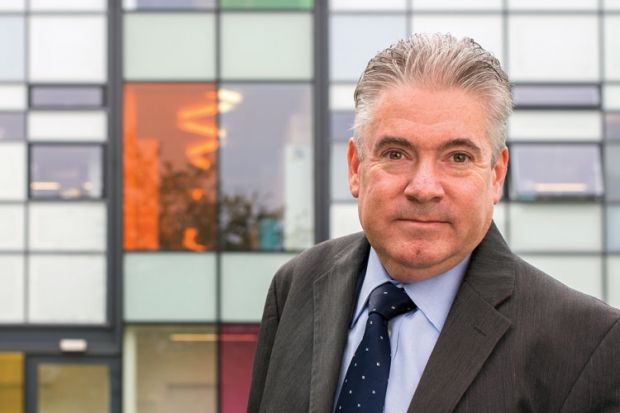Source: Eleanor Bentall
Last month the debut courses were rolled out on FutureLearn, the UK’s first massive open online course platform. At the forefront of the development has been The Open University, which owns the platform and already has vast experience in delivering higher education online, and its vice-chancellor, Martin Bean.
Where and when were you born?
Melbourne, Australia, 26 October 1964.
How has this shaped you?
Anyone who grows up in Australia has an immense sense of being a long way from the rest of the world. I was therefore destined to end up travelling around, although I had no idea that my journey would take me to quite so many countries.
Describe FutureLearn in fewer than 140 characters
Using innovative technology to open up world-class education for more people than ever before.
Have you had a eureka moment?
Yes – quite a few. Probably the most significant is the emergence of the social web and seeing the impact it could have on how we learn and deliver education.
What advice would you give to your younger self?
Be more patient. I have been lucky enough to experience many wonderful things in life, but I sometimes wish I had slowed down just a little to absorb what was going on around me.
What has changed most in higher education in the past decade?
Creative, innovative use of technology that has allowed educators to offer students so much more, both from a distance and in person.
What are the best and worst things about your job?
The best is presiding at degree ceremonies and seeing how proud our graduates are to have done something many thought they would never be able to achieve. Worst are the meetings and paperwork needed to make that happen.
Who have you always admired?
I always admired my dad. He had such a kind yet persistent way of approaching the world, and later in life I discovered that lurking behind this was an intensely entrepreneurial person, always embracing technology – in his case relating to music – never being sentimental about letting the old technology go and always being excited about new developments.
What keeps you awake at night?
The family of badgers that has been trying to relandscape my garden.
As a child, what did you want to do when you grew up?
Early on I thought of becoming a lawyer, largely because of the fun I had debating and speaking in public. But once I got introduced to the personal computer and education, there was no turning back.
What’s your biggest regret?
Because my family has always lived outside Australia, it’s probably that I’ve missed the opportunity to see my children grow up near their Australian grandparents.
Moocs or books?
E-books that form part of a Mooc!
Will FutureLearn change the world?
The world has already changed; FutureLearn represents UK higher education changing with it.
Appointments
Simon Usherwood, a senior politics lecturer at the University of Surrey, has been appointed associate dean of learning and teaching in the Faculty of Arts and Human Sciences.
The University of Melbourne has appointed Jane Davidson the inaugural head of its new research initiative in the creative and performing arts. She will consolidate and deepen interdisciplinary research links within the university and the national and international arts community.
Manchester Metropolitan University has named Jean-Noel Ezingeard deputy vice-chancellor (strategic planning and research). He was formerly executive dean of business and law at Kingston University, and an academic dean at the Henley Business School, University of Reading.
Keith Shine is the University of Reading’s first Regius professor of weather and climate science.
Social psychologist Julie Barnett has joined the University of Bath, where she will work to develop the already strong profile of health psychology. She joins from Brunel University.
Birmingham Conservatoire, part of Birmingham City University, has welcomed Chris Houlding as the head of brass. He has previously worked at the Royal Northern College of Music and Folkwang University of the Arts in Germany.
Register to continue
Why register?
- Registration is free and only takes a moment
- Once registered, you can read 3 articles a month
- Sign up for our newsletter
Subscribe
Or subscribe for unlimited access to:
- Unlimited access to news, views, insights & reviews
- Digital editions
- Digital access to THE’s university and college rankings analysis
Already registered or a current subscriber? Login
